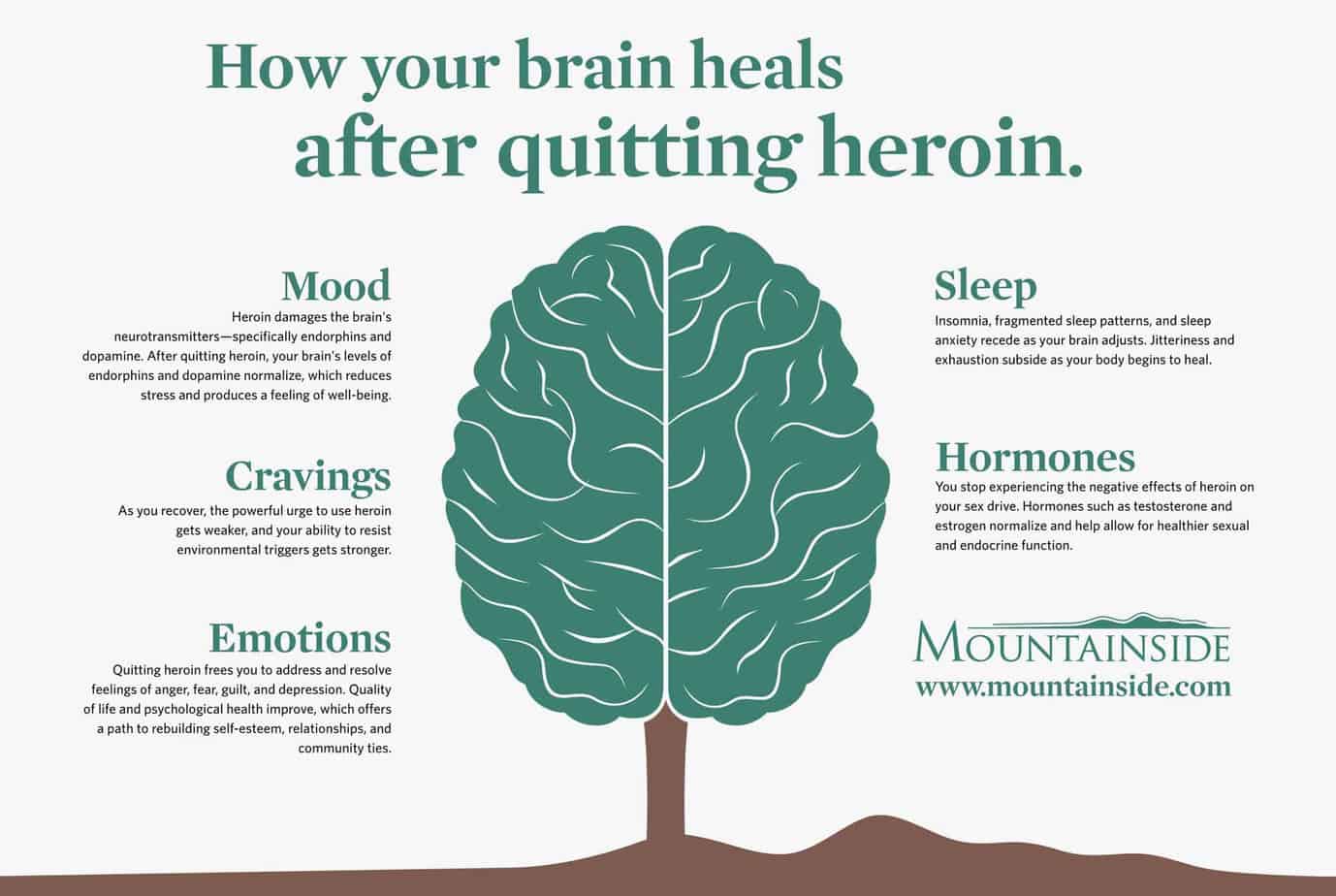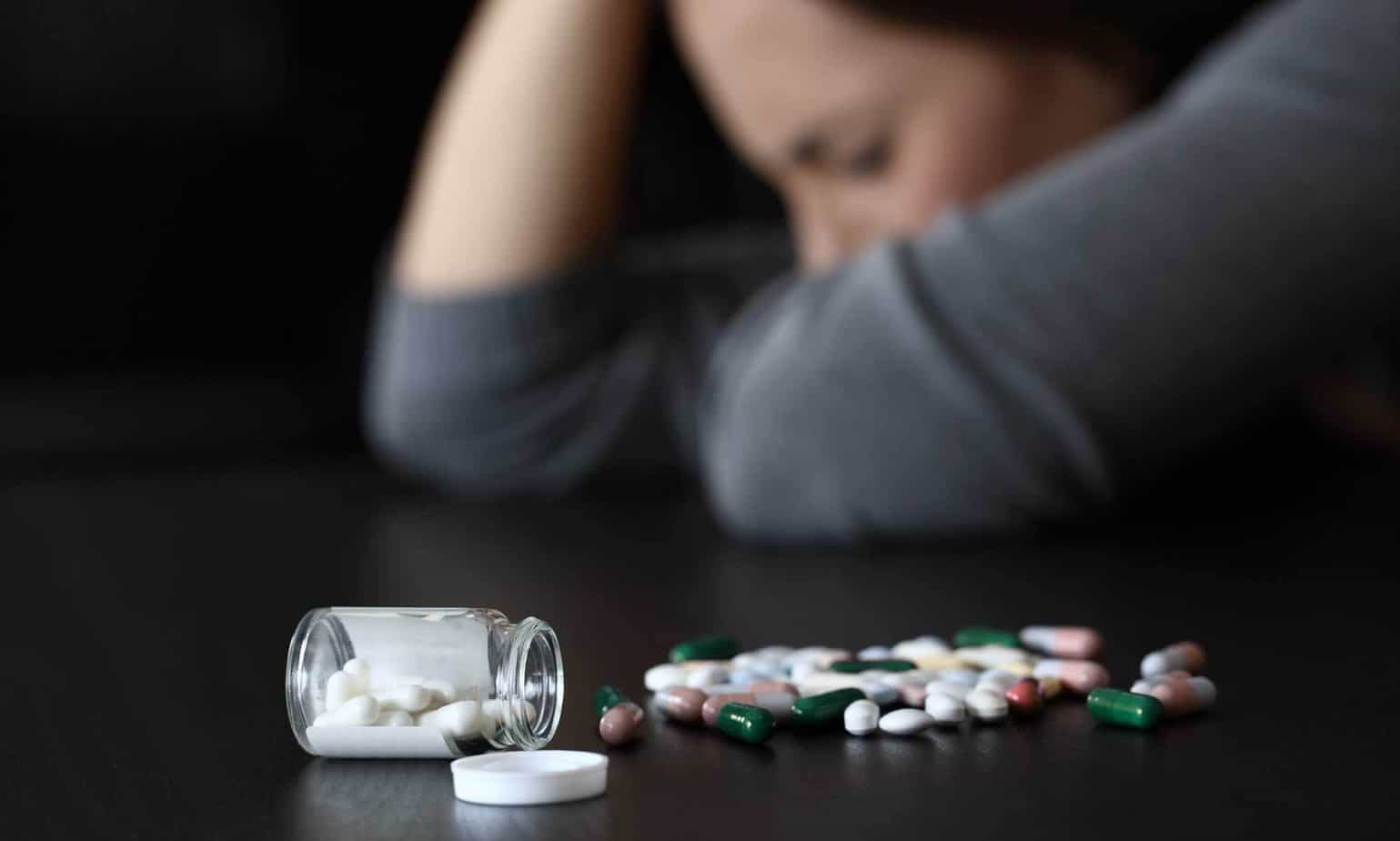Heroin addiction can have devastating effects on the brain, impacting various cognitive functions and overall well-being. Can the brain of a heroin addict be healed? Yes. The brain has an incredible ability to heal and recover, even after prolonged heroin use. Read on to learn more about heroin’s effect on the brain, the process of brain healing after quitting heroin, and the positive changes that occur in different aspects of life.
1. Mood Enhancement and Neurotransmitter Restoration
Heroin abuse disrupts the brain’s natural balance of neurotransmitters, specifically endorphins and dopamine. These neurotransmitters play a crucial role in regulating mood and pleasure. When you quit heroin, your brain gradually restores the normal levels of endorphins and dopamine, leading to an improvement in mood. This restoration reduces stress, anxiety, and depression, and creates a sense of well-being and contentment.
At even three months sober, physical changes and mood changes can be jarring. During the early stages of recovery, it is common to experience mood swings and emotional instability as the brain adjusts to the absence of heroin. However, as time goes on, these mood fluctuations become less intense and more manageable. The brain’s healing process allows for a more stable and positive emotional state.
2. Reduction in Cravings and Increased Resistance to Triggers
One of the biggest challenges in heroin recovery is overcoming the intense cravings for the drug. However, as the brain heals, the power of these cravings gradually diminishes. The brain’s reward system starts to recalibrate, reducing the urge to seek out heroin as a means of obtaining pleasure.
Additionally, the brain becomes more resilient to environmental triggers associated with drug use. You gain increased resistance to situations and cues that are used to trigger cravings, allowing you to navigate through daily life without constantly battling the urge to use heroin.
3. Emotional Healing and Improved Quality of Life
Quitting heroin provides an opportunity for emotional healing and the resolution of deep-seated feelings of anger, guilt, and depression. As the brain recovers from the damaging effects of heroin, individuals often experience a renewed sense of clarity and emotional stability.
Recovery from heroin addiction opens the door for personal growth and the rebuilding of self-esteem, relationships, and community ties. It allows individuals to address underlying emotional issues and develop healthier coping mechanisms. With a clearer mind and improved emotional wellbeing, individuals can enjoy a higher quality of life and cultivate stronger connections with others.
4. Restorative Effects on Sleep Patterns
Heroin addiction can severely disrupt sleep patterns, leading to insomnia, fragmented sleep, and sleep anxiety. However, as the brain heals, these sleep disturbances gradually subside. With continued abstinence from heroin, you can expect improvements in the duration and quality of sleep.
Restorative sleep is crucial and plays a vital role in the brain’s recovery process. As your sleep patterns normalize, you will experience reduced jitters and exhaustion, allowing for better physical and mental functioning throughout the day.
5. Hormonal Balance and Sexual Function
Heroin abuse can disrupt hormone levels in the body, leading to imbalances that impact sexual function. However, when you quit heroin, hormonal balance begins to restore. Hormones such as testosterone and estrogen normalize, contributing to healthier sexual and endocrine function.
Restoring hormonal balance can have a significant impact on various aspects of life, including energy levels, mood stability, and overall vitality. It plays a crucial role in rebuilding physical and emotional health after heroin addiction.
6. Cognitive Improvement and Neuroplasticity
Long-term heroin use can have detrimental effects on cognitive function, including memory, attention, and decision-making. What part of the brain does heroin affect? Heroin use targets the limbic system, cortex, and brain stem.
However, as the brain heals, these cognitive abilities gradually improve. The brain has a remarkable capacity for neuroplasticity, allowing it to adapt, reorganize, and form new neural connections.
Engaging in activities that promote cognitive stimulation, such as puzzles, reading, and learning new skills, can further enhance the brain’s recovery and cognitive function. It is important to note that the extent of cognitive improvement may vary depending on the individual and the duration and severity of heroin use.
Supportive Measures for Brain Healing
While the brain has a natural ability to heal, there are several measures you can take to support and enhance the recovery process:
- Regular exercise for brain and body health. Engaging in regular physical exercise has numerous benefits for brain health. Exercise increases the size of the hippocampus, a part of the brain particularly vulnerable to the effects of heroin use. It also promotes the release of endorphins, boosts mood, and improves overall mental and physical well-being.
- Mindfulness practices for brain circuit strengthening. Practicing mindfulness, such as meditation and deep breathing exercises, can help strengthen brain circuits that may have been damaged by heroin use. Mindfulness promotes relaxation, reduces stress, and improves focus and attention. It can be a valuable tool in supporting brain healing and emotional well-being during the recovery process.
- Balanced and nutritious diet for vitamin and mineral restoration. What vitamins heal the brain where heroin destroys it? Heroin addiction can deplete the body of essential vitamins and minerals, such as vitamin C, vitamin D, and vitamin E. Eating a balanced and nutritious diet can help replenish these nutrients and support the brain’s healing process. Focus on consuming various fruits, vegetables, whole grains, lean proteins, and healthy fats to provide the necessary building blocks for brain recovery.
- Prioritizing restful sleep for brain detoxification. Establishing good sleep habits is crucial for brain healing and detoxification. Aim for a consistent sleep schedule, create a relaxing bedtime routine, and ensure a comfortable sleep environment. Quality sleep allows the brain to flush out toxins and promotes overall brain health and recovery.
Quitting heroin is a courageous step towards reclaiming your life and allowing your brain to heal. The recovery process brings about profound changes in mood, cravings, emotions, sleep patterns, hormonal balance, and cognitive function. With time and support, the brain’s remarkable ability to heal and adapt can lead to significant improvements and a brighter future free from the grip of heroin addiction.
Remember, recovery is a journey, and every individual’s experience is unique. Seek professional help, engage in supportive communities, and prioritize self-care to support your brain’s healing process and foster lasting recovery.
If you or a loved one is struggling with addiction, Mountainside can help.
Click here or call (888) 833-4676 to speak with one of our addiction treatment experts.

 By
By 






